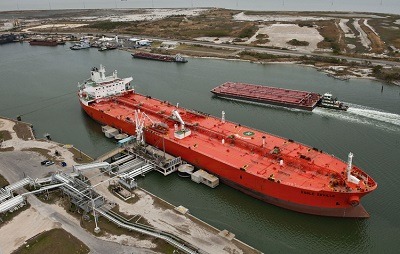Brent crude prices fell two percent on Monday as investor focus returned to global supply, with Iran insisting on a rise in oil exports and U.S. drillers slowing the reduction in rigs.
Global benchmark Brent futures LCOc1 were down $1.06 at $47.66 a barrel by 1345 GMT, on track for a fourth straight day of losses for the first time in a month.
U.S. crude futures CLc1 traded at $47.49 a barrel, down 92 cents on Friday’s close.
Iran’s Deputy Oil Minister Rokneddin Javadi told the Mehr news agency on Sunday his country had no plan to halt a rise in oil production and exports.
He said Iranian crude exports, excluding gas condensates, were at 2 million barrels per day (bpd) and would reach 2.2 million bpd by the middle of summer.
His comments further dampened expectation for a coordinated decision to freeze OPEC oil production at a meeting of the exporter group in Vienna on June 2.
Adding to signs the oil market will remain over supplied, data showed last week the number of rigs operated by U.S. drillers held steady for the first time this year, following a near two-year slump in the rig count.
“Stagnating rig counts and comments from Iranian officials show that the way up for the oil prices may come to an end now,” said Frank Klumpp, oil analyst at Stuttgart-based Landesbank Baden-Wuerttemberg.
The bearish news outweighed concerns about unplanned oil outages globally hitting a five-year high mainly due to wildfires in Canada that have affected oil-sands production and losses in Nigeria and Libya.
Gains in recent weeks on these outages convinced speculators to increase net long positions on Brent and gasoil futures in the week ending May 17, data published by InterContinental Exchange (ICE) showed on Monday.
However, Bjarne Schieldrop, chief commodities analyst at SEB, said he forecast Canadian production to resume next month and weigh on Brent crude prices.
In France, protests by oil workers shut down some of the country’s oil infrastructure, including three of Total’s refineries and some 600 petrol stations.
A similar prolonged strike at French refineries in 2010 led to a glut of crude in Europe because it could not be delivered, and a spike in refined product prices due to low output.
Goldman Sachs said in a research report on Monday that it expected shale productivity gains through 2020, which will push average breakevens for shale plays below $50 per barrel for U.S. crude.
It raised its average Brent forecast to $45 per barrel this year, from $39, while it said West Texas Intermediate would average $45 per barrel this year, up from $38 previously.
–
Reuters





